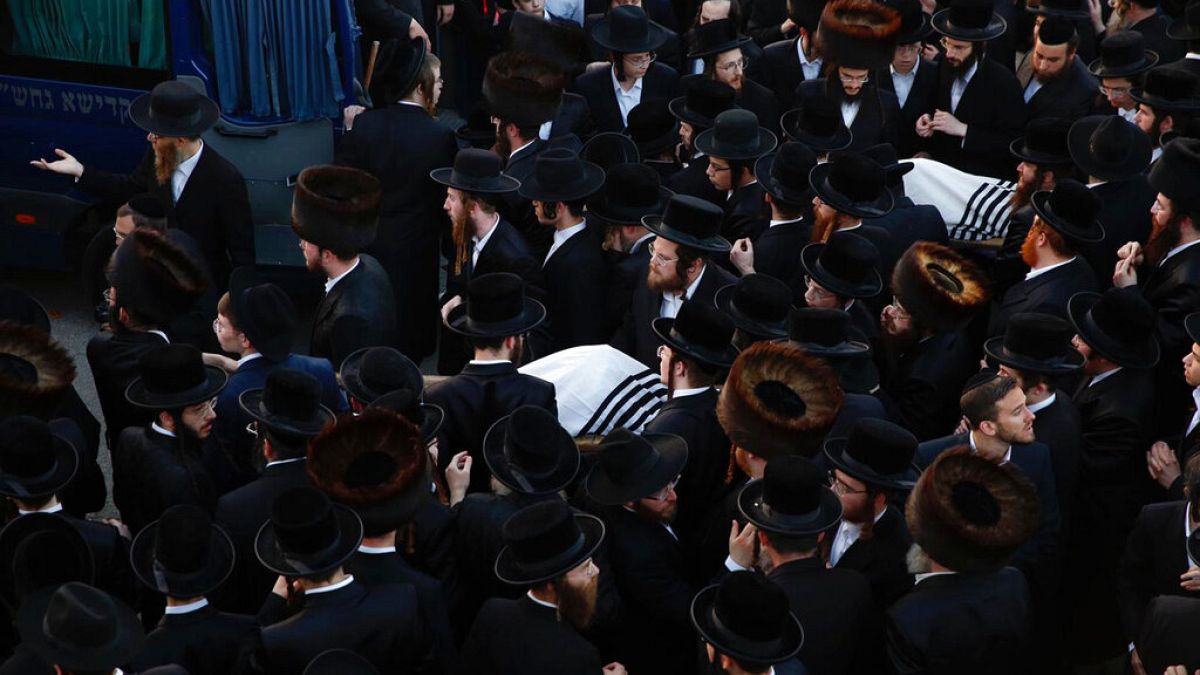On Friday a festive gathering in northern Israel turned into one of the country's worst-ever tragedies, with at least 45 people killed in a stampede.
The holiday of Lag BaOmer is one of the happiest days on the calendar for Israel's ultra-Orthodox community - a time of mass celebrations in honour of a revered sage.
But in a split second on Friday, the festive gathering in northern Israel turned into one of the country's worst-ever tragedies, with at least 45 people crushed to death and dozens injured in a stampede.
The disaster prompted a national outpouring of grief as devastated families rushed to identify their dead relatives and bury them ahead of the Jewish Sabbath.
There was also anger toward authorities over an accident that experts had long feared, further clouding Prime Minister Benjamin Netanyahu's hopes of remaining in office.
Netanyahu, who briefly visited Mount Meron at midday, offered his condolences. "n these moments our people unite and that is what we are doing at this moment as well," he said.
He announced Sunday would be a day of national mourning and said he had joined the masses of people who donated blood for the victims. Israel's President Reuven Rivlin lit 45 candles in honour of the dead.
The stampede started around 1 am as people began to leave and thronged a narrow, tunnel-like passage. According to witnesses, people began to fall on a slippery ramp, causing others to trip and sparking panic.
Lag BaOmer is very popular with Israel's ultra-Orthodox community. The main event takes place each year at Mount Meron. Tens of thousands, mostly ultra-Orthodox, celebrate to honour Rabbi Shimon Bar Yochai, a 2nd-century sage and mystic who is believed to be buried there. This year, authorities said some 100,000 people attended.
The crowds light bonfires, dance and have large festive meals as part of the celebrations. Across the country, even in secular areas, smaller groups gather in parks and forests for barbecues and bonfires.
Video footage from the scene of the disaster showed large numbers of people, most of them black-clad ultra-Orthodox men, squeezed in the tunnel. Witnesses complained that police barricades had prevented people from exiting properly.
At least 45 people were killed, according to the Israeli Health Ministry, with four people remaining in critical condition and dozens more hospitalised.
Bodies were later taken to Israel's central forensic institute for identification, where distraught families waited to identify their loved ones. Israel's Army Radio said some 40 people remained unaccounted for.
Meanwhile, there were reports from the nearby city of Bama that local Muslims have been helping the survivors.
In a race against time, a number of funerals were held before sundown Friday, the start of the Jewish Sabbath when burials do not take place. The death toll at Mount Meron exceeded the 44 people killed in a 2010 forest fire, previously believed to be Israel's deadliest civilian tragedy.
The Justice Ministry said the police were launching a probe into possible criminal misconduct by officers.
Experts have long warned that the Mount Meron celebrations were ripe for disaster due to the crowded conditions, large fires and hot weather. In a 2008 report, the state controller, a watchdog government office, warned conditions at the site, including escape routes, "endanger the public.''
Last year, the celebrations were greatly scaled back due to coronavirus restrictions. But this year's event marked the first religious gathering to be held legally since Israel lifted most restrictions in the wake of its successful vaccination programme.
According to Health Ministry guidelines, public gatherings continue to be limited to no more than 500 people. But Israeli media said that Netanyahu assured ultra-Orthodox leaders that the celebrations would take place, despite objections from public health officials. Netanyahu's office did not respond to requests for comment.
The stampede also threatened to deepen a broad public backlash against the ultra-Orthodox.
Netanyahu came under heavy criticism over the past year for allowing ultra-Orthodox communities to flout safety guidelines by opening schools and synagogues and holding mass funerals. The ultra-Orthodox communities were among the country's hardest hit by COVID-19.
